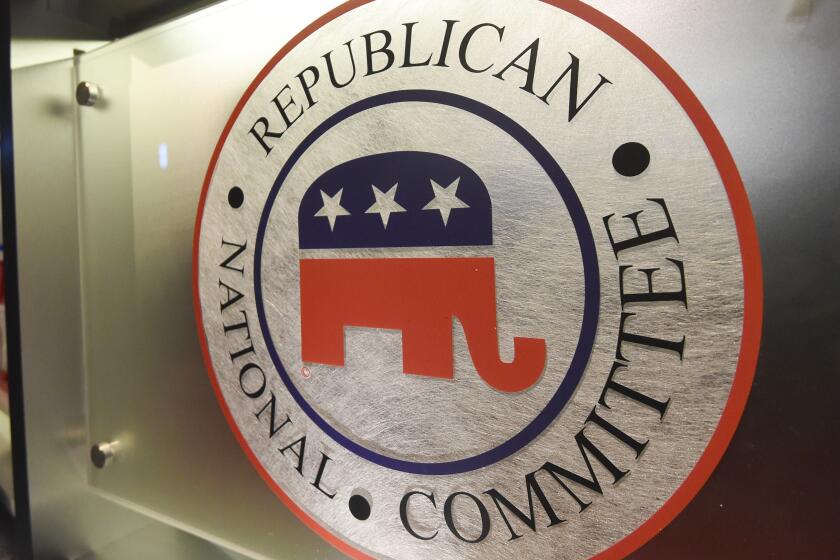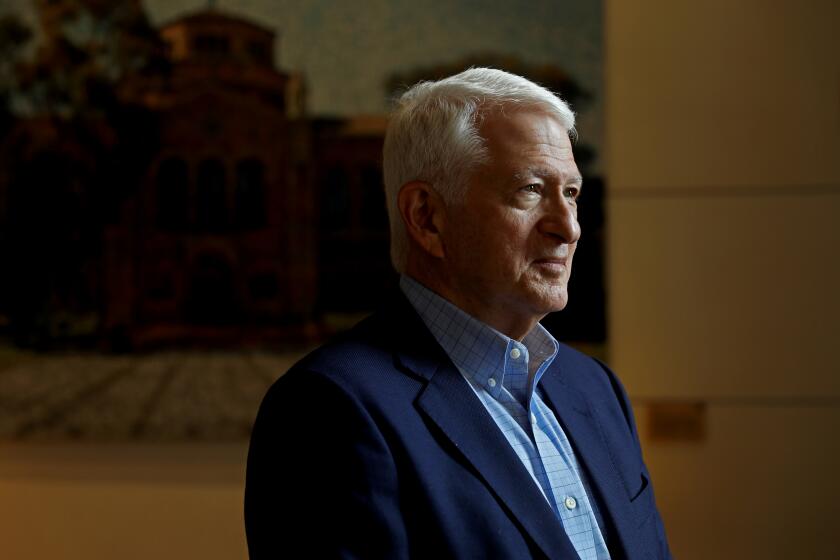Justice Powell Quits, Opens Way for Conservative Court : Exit a Surprise to Reagan; Nominee to be Named Soon
Supreme Court Justice Lewis F. Powell Jr., who played a pivotal role in shaping American law for 15 years as a swing vote in some of the court’s most controversial cases, unexpectedly retired today, setting the stage for conservatives to gain a clear majority on the high court.
Powell, who will be 80 on Sept. 19 and has suffered from prostate cancer, said he was leaving the bench “with a great deal of sadness.”
The moderate jurist’s departure will give President Reagan an opportunity to change significantly the court’s ideological balance, but Powell said that did not play a part in his decision.
Powell’s retirement, announced from the bench by Chief Justice William H. Rehnquist just before the court concluded its 1986-87 term, took White House officials by surprise.
Howard H. Baker Jr., White House chief of staff, learned of Powell’s decision in a morning telephone call from Rehnquist. He immediately told Reagan.
Somewhat Surprised
“The President acknowledged it, expressed . . . mild surprise, not great surprise. He had no forewarning,” Baker told a reporter.
Reagan said in a statement that he considered naming Powell’s successor “one of the most significant duties of my office” and will submit a nomination soon in order that the court will be at full strength when its next term begins in October.
The nomination must be confirmed by the Democratic-controlled Senate.
Names Bandied About
Speculation about potential nominees most often has centered on Sen. Orrin G. Hatch (R-Utah) and two federal appeals court judges, Robert H. Bork in Washington and Richard Posner in Chicago.
Baker himself has been mentioned by some as a potential nominee.
Powell’s departure could have a dramatic effect on one of the most politically and morally divisive issues confronting the court: abortion.
In its latest major ruling on abortion, which was legalized by the court’s landmark 1973 ruling, the court split 5 to 4 last June as it struck down Pennsylvania regulations that would have made abortions more difficult to obtain.
Powell voted with the majority in that case, as he had in most “pro-choice” rulings since 1973.
Avoided Rigidity
Throughout his tenure, Powell avoided the rigid ideology that at times isolated the court’s liberal and conservative wings.
Powell once said, “I try very hard to reconcile views I may have to help put a court (majority) together.”
He considers his controlling opinion in the much-heralded 1978 Bakke case, in which the court for the first time upheld the concept of affirmative action, a highlight of his tenure.
In 1982, Powell spoke for the court in a case dating back to the presidency of Richard M. Nixon, who had chosen him for the court. By a 5-4 vote, the court ruled that Presidents enjoy “absolute immunity” from being sued for monetary damages if their misconduct in office was within the “outer perimeter” of official duties.
Considered Pivotal
Powell provided what was considered the pivotal vote last year when the court ruled, 5 to 4, that consenting adults have no constitutional right to private homosexual conduct.
Ralph Neas, executive director of the Leadership Conference on Civil Rights, said of Powell, “While he is a conservative, he has not been a right-wing zealot.”
Neas added, “The Senate now faces its most historic decision of the Reagan era.”
At a news conference, Powell said his decision was made with the help of family members, particularly his son Louis, a lawyer in Richmond, Va.
Powell said his son told him, “Dad, it’s a whole lot better to go out when some people may be sorry than it is to wait until you decide to go and people say, ‘Thank God we got rid of that old gent.’ ”
Asked about the court’s workload and its effect on his decision, Powell said he maintained a six-day workweek to the end. “I don’t regard it as work in the normal sense of the word,” he said. “I have considered it a privilege.”
More to Read
Get the L.A. Times Politics newsletter
Deeply reported insights into legislation, politics and policy from Sacramento, Washington and beyond. In your inbox three times per week.
You may occasionally receive promotional content from the Los Angeles Times.






